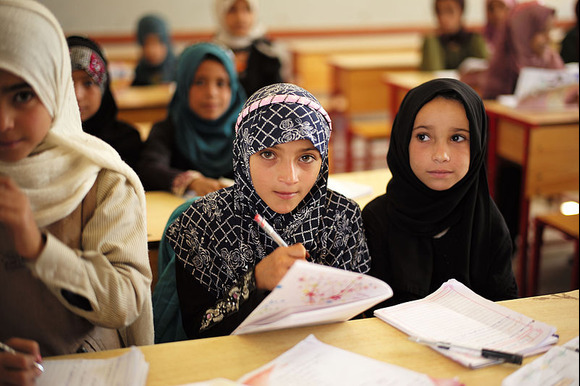On Saturday, the United Nations children’s agency called on the Taliban authorities in Afghanistan to promptly revoke the ongoing ban on girls’ education, emphasizing the urgent need to protect the future of millions who have been denied their educational rights since the Taliban regained control in 2021.
UNICEF’s appeal coincides with the commencement of a new academic year in Afghanistan, which has seen girls beyond the sixth grade excluded from schooling. The agency reported that this ban has resulted in an additional 400,000 girls being deprived of education, raising the total number to 2.2 million.
Afghanistan stands as the sole nation globally that prohibits female secondary and higher education, with the Taliban defending this restriction by claiming it aligns with their interpretation of Sharia, or Islamic law.
Catherine Russell, UNICEF’s executive director, stated, “For over three years, the rights of girls in Afghanistan have been violated. It is imperative that all girls are allowed to return to school immediately. If these talented and bright young girls are continually denied an education, the repercussions will echo through generations.”
She further warned that the ongoing ban on girls’ education will jeopardize the futures of millions of Afghan girls, predicting that if the prohibition continues until 2030, over four million girls will have lost their right to education beyond primary school, with catastrophic consequences.
Russell cautioned that a decline in the number of female doctors and midwives will deprive women and girls of essential medical care, potentially leading to an estimated 1,600 additional maternal deaths and over 3,500 infant fatalities. “These figures are not mere statistics; they represent lost lives and devastated families,” she remarked.
Earlier this year, the Afghan Taliban government did not attend a global conference hosted in Pakistan, where Nobel laureate Malala Yousafzai denounced the situation regarding women’s and girls’ rights in Afghanistan as a form of gender apartheid.






